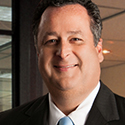Snapshot of the Fed’s Move to Unwind Assets
RSM US Chief Economist Joseph Brusuelas weighs in on what the news means for the middle market and economic growth.

The Federal Reserve announced on Wednesday that it would begin paring back the vast amounts of government bonds and mortgage-backed securities it had bought up to rescue the economy—an effort known as quantitative easing.
MMG asked RSM US Chief Economist Joseph Brusuelas, an expert on the middle market, to weigh in.
Q. What’s your take on the Fed’s move?
Joseph Brusuelas: For middle-market companies, the most important thing is that the Fed is now embarking on what might be called “quantitative tightening.” The yield curve, over a longer period of time, will return to what might be considered normal. Rates at the front end will be lower eventually than rates over the long-term spectrum.
In the near term, the Fed is expected to hike rates one more time in 2017 and three times in 2018. The federal funds rate will be 2.5 percent. The Fed signaled that in 2020 it expects (the rate) to sit at, or close to, 3 percent.
What that means is that the Fed has declared victory and its intent to exit the arena.
The onus is now on the fiscal authority—meaning Congress and the president—to create conditions for faster growth and improved productivity.
“The onus is now on the fiscal authority— meaning Congress and president—to create conditions for faster growth and improved productivity.”
Q. What does this mean for economic growth in the near term?
JB: That depends on the political authorities and their ability to implement reform. If we do not see tax reform in 2017 and significant infrastructure spending in 2018, conditions are ripe for further erosion in business optimism.
The paring back of (the Fed’s) balance sheet, which starts at $10 billion per month and moves to $30 billion per month by the end of next year, is a sign of the intent of the Fed to gradually normalize its balance sheet and tighten policy over the medium term.

Joseph Brusuelas is chief economist for RSM US LLP.


